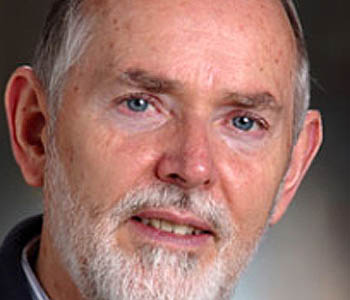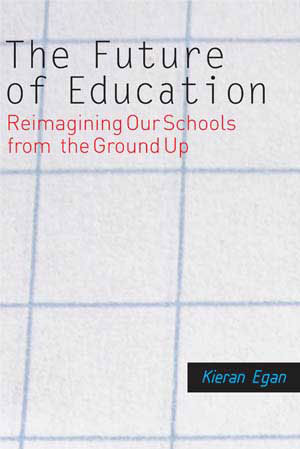
The Future of Education is an attempt to do precisely what its subheading suggests—reimagine our schools from the ground up. The book begins with a scenario in which a priestess in ancient Athens is holding up the bloody remains of a heifer’s liver, declaring that it is unspotted and that the goddess approves the idea of war with Corinth. One of the men in the audience suggests to his friends that this doesn’t seem like the best way to make foreign policy. His friends treat him like a fool; unpractical and not knowing how the world works—of course one has to sacrifice heifers to discover what the goddess wishes for the state. We then move to the future, in which a historian is trying to account for the bizarre fact that between the mid-nineteenth to the mid-twenty first century all “modern” societies put their children in institutions called schools in order to educate them—despite the fact that all surveys suggested that these schools were hopelessly inadequate at performing this task.
Most people take so for granted the institutions they are born amongst that they find it almost impossible to reflect on them in any serious way. The book begins by trying to show that our schools are dysfunctional because they try to perform three incompatible tasks at the same time—1. socializing children to the norms, conventions and values of their society; 2. shaping their minds to perceive the truth about the world, by engaging them in the academic enterprise that makes them skeptical of the norms, conventions, and values of their and other societies; 3. aiming to ensure the development of each child’s individual potential as far as possible. Having three distinct aims that constantly undermine each other makes for an institution that is ineffective at doing any of them.
The rest of the book outlines an alternative conception of education and shows, in a “history” of education from 2010 to 2060 how this alternative conception of education can be brought into reality, step by step.
“Our schools are dysfunctional because they try to perform three incompatible tasks at the same time—1. socializing children to the norms, conventions and values of their society; 2. shaping their minds to make them skeptical of the norms, conventions, and values of their and other societies; 3. aiming to ensure the development of each child’s individual potential as far as possible.”
I suppose, being a university professor dripping with awards and prizes, that I have played the schooling game well. But I was never sure what sense it all made. Why did I have to learn to decline those Latin irregular nouns, or be able to prove that opposite interior angles of a parallelogram are congruent, or recall the provisions of the treaty of Ghent? Much of the time I and everyone I knew was bored with schooling, and had difficulty relating what was happening in class with human life and its enhancement. My book is an attempt to show that, indeed, everything in the world is wonderful, but that schools are designed almost to disguise this slightly shameful fact. We represent the world to children as mostly known and rather dull. The opposite is the case: we are surrounded by mystery, and what we know is fascinating. My book is an attempt to show how we can reconceive the school and the process of education to engage students’ emotions and imaginations with knowledge.
The beginning of Chapter 3 begins to lay out a different way in which we can conceive of how students learn to make sense of the world and their experience, and then the rest of the chapter explores five kinds of understanding that we accumulate by learning to deploy sets of “cognitive tools.” These yield what I call somatic, mythic, romantic, philosophic, and ironic forms of understanding. That’s the total of the book’s jargon. But these odd categories provide a new way of looking at how our minds can develop and find the world, as is only proper, emotionally and imaginatively engaging.
“To read most books about education, you would get the idea that some particular reform […] would make the school work satisfactorily. I show that the problem with our modern idea of the school is not fixable by the array of remedies currently on offer.”
The aim of the book is to persuade people that the school as we know it is both an ineffective institution and also a doomed institution. What is offered is a kind of recipe for rescuing what is good about the idea of education and showing how we can rebuild schools that will be much more successful in educating children. I hope the book will stimulate people to reflect on the school in a more radical way than is common—what is common is the search for scapegoats for inadequacies, or the suggestion that some particular innovation cure will fix them. To read most books about education, you would get the idea that some particular reform—more attention to “the basics,” more freedom for children’s exploration, voucher systems and market disciplines, greater use of technology, and so on—would make the school work satisfactorily. I show that the problem with our modern idea of the school is not fixable by the array of remedies currently on offer. The problem lies elsewhere, and fixing it requires of us the tougher task of rethinking the idea of education.


Kieran Egan is the author of more than twenty books, mostly about education. In 1991 he received the Grawemeyer Award in Education. In 1993 he was elected to the Royal Society of Canada, and in 2000 he was elected as Foreign Associate member to U.S. National Academy of Education. He received a Canada Research Chair in 2001, and won the Whitworth Award in 2007. His other books include The Educated Mind: How Cognitive Tools Shape Our Understanding (University of Chicago Press, 1997), Getting It Wrong from the Beginning: Our Progressivist Inheritance from Herbert Spencer, John Dewey, and Jean Piaget (Yale University Press, 2002), An Imaginative Approach to Teaching (Jossey-Bass, 2005), and Teaching Literacy: Engaging the Imagination of New Readers and Writers (Corwin Press, 2006).